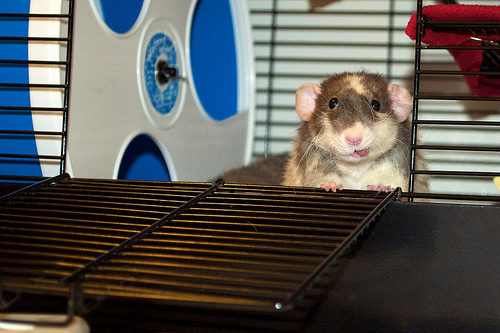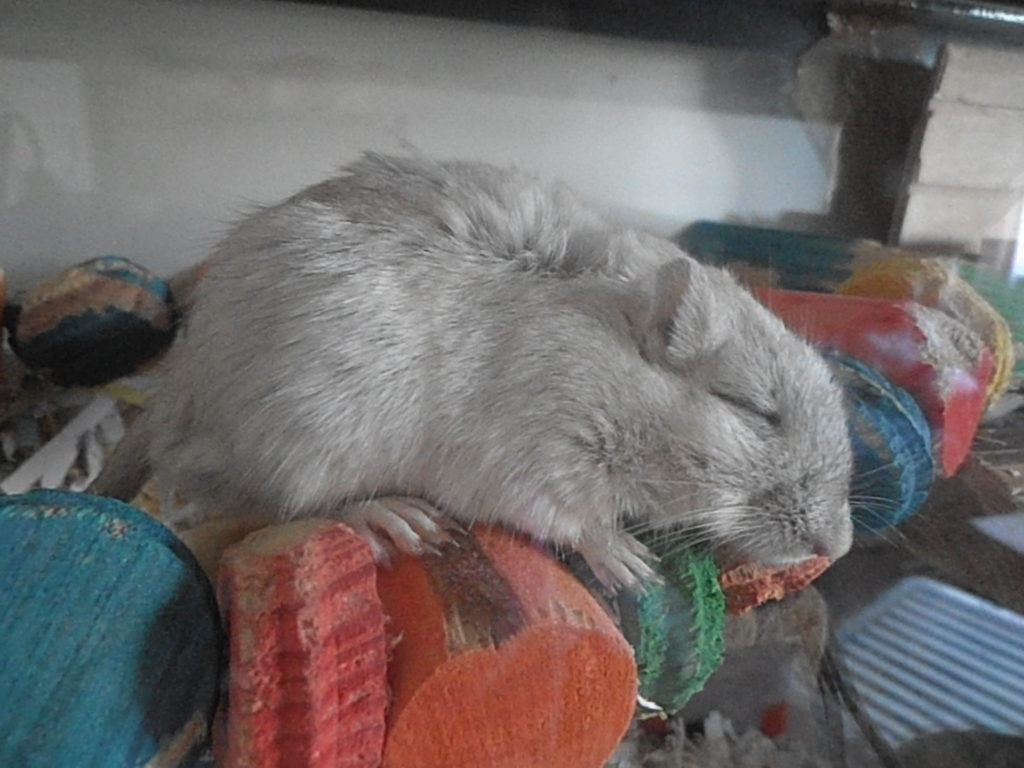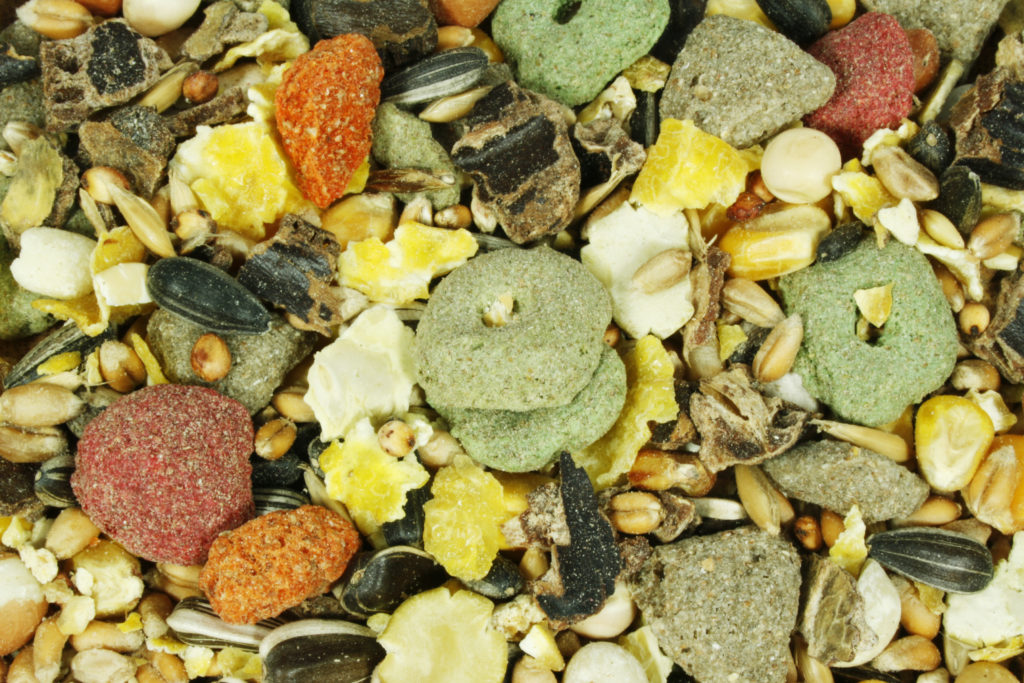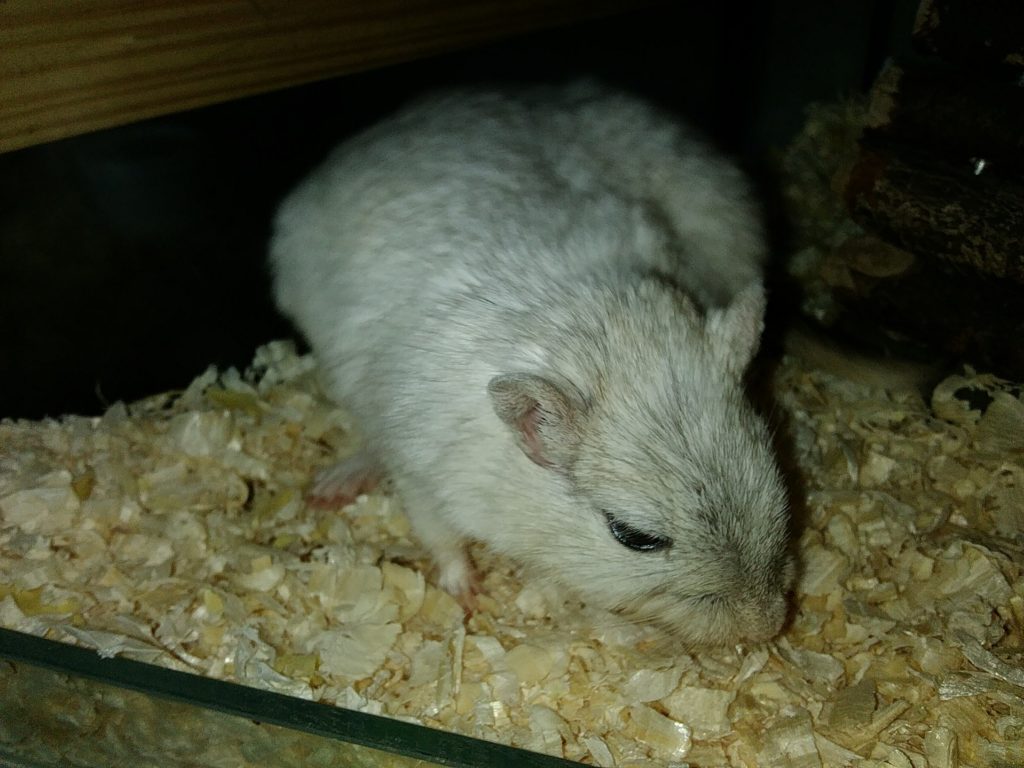Gerbils, as pets, live on average between 2.5 and 4 years of age, but as high as 8 if you are to believe some of the stories?
A breeder I know says they regularly top 4 years of age with their line of gerbils, but generally 4 is the uppermost age limit for most other gerbils – and a ‘great age’ when accomplished.
Unlike rats, mice and hamsters, gerbils can really have a good long healthy life.


Also, unlike those other rodents – gerbils should be considered suitable for more veterinary treatments due to their longer time with us. Avoiding an operation on a 1.5 year old rat may make perfect sense – but a similar aged gerbil would be more than healthy enough to comfortably survive surgery and live long enough afterwards to make it worthwhile.
In the wild – the average age of a gerbil is based not on how long they can live for but on how long they can survive for – so an average age of 2 is about the size of it. Just like the commonly quoted average age of a cat (out of all cats) being only 1 year old (as so many of them die as kittens on the road).
The average age of a surviving cat would be around 10-14 with some winners out there at 38 years old!!! (Well done Creme Puff from Texas)
So how long can gerbils live?
We don’t know how long a gerbil can theoretically live for in captivity, as every animal’s’ body can only do so much. We also don’t know if we are missing something really important from their diet or habitat that could extend their lifespans further.
Also, it is really difficult to breed for longevity of course. You don’t know which gerbils will live to be really old until they ARE really old – and then they are so old that they aren’t fertile anymore?

All breeders can do is work from the other end – avoid breeding from gerbils that have issues themselves or are known to have relatives with health issues.
Many long-term pet breeders and show breeders work very hard to eliminate such characteristics as many of these may well be hereditary.
Certain illnesses are more common in some areas than in others, so it is believed that many common illnesses could be passed down from parents the children. Something definitely worth avoiding if you can.
However, many accidental litters or one-off litters are born these days that go against this completely – perhaps a good reason not to breed from a gerbil who was from an accidental litter themselves?
Why is a gerbil lifespan so variable?
The reason for this is very complicated, but basically it comes down to genetics and diet.
If you have a good line of gerbils – a line being a related family of gerbils bred from known stock over a long period of time – and have bred this line with health in mind then your gerbils may well live longer than average – on average (there will always be exceptions).
If you feed your gerbils a balanced diet – based on the best facts you can find and keeping the protein levels under control and making sure the fat is high enough can prevent or delay health issues down the line – you should get the best out of your individual gerbils.

Having the most suitable bedding materials, habitat environment as well as a variety of fresh vegetables and some hay can also add to the list of things that can go right for you and your pets.
The best diets to buy or make are those used or recommended by long-term breeders as well as those people who show their gerbils. The reason being that they will have had hundreds of gerbils over their lifetime and so would have seen trends and run trials to find the best diets and bedding etc.
They need healthy, long-lived gerbils in their kennel otherwise they wouldn’t be very successful breeders would they? Surely they have put the effort in and so should have some pretty decent advice worth following.
How do you find a healthy line?
You need to find a good breeder for starters.
Keeping a line healthy includes keeping many of your own stock yourself as it ages so you can see things develop. It also means keeping records of ailments and behaviours along the way to tally up data over time.
Most illness in gerbils only become visible to us humans later in life and so a breeder who sells ALL their pups will never be able to say that they have a healthy line – as they haven’t kept any long enough to see what may go ‘wrong’ as the years add up. Young pups rarely show signs of heart failure or a propensity to grow scent gland tumours.
Common illness in gerbils which take a year or more to flourish include strokes, scent gland tumours, ovarian cysts (image below) and heart failure – and so without keeping in contact with at least some of your adult gerbils, you won’t know whether these common problems are prevalent in your lines.

And it goes without saying that a gerbil from an accidental litter or a one-off litter or two probably won’t have this same history attached – you really won’t know anything about them. They could live for 6 months or 6 years – it will be pot luck entirely on that gerbils lifespan?
It wouldn’t surprise me though if Creme Puff was a street moggie – individuals are totally different to the population as a whole – and can buck the trend. However, what we needs is a real multi-generational trend in longevity.
Healthy longevity.
This is what gerbil breeders are aiming for.
My 11 year old son’s gerbil died today – 1 of a pair of brothers (Chubbs and Cheesecake). They were class pets before we adopted them, but we think he was about 2 years old.
We were very surprised (and saddened) because Cheesecake was so active and needn’t and our son was very conscientious about their habitat and diet.
Our question – does the remaining brother need a buddy? They were very close, often wrestling and grooming each other. And, how do we find a reputable breeder?
I’m sorry to hear that one of your little men has passed away – and I doubt if it was anything your son had done at all so I hope he knows that. Gerbils – just like humans – can have internal issues or disease that don’t show on the outside, and also gerbils are very good at hiding anything wrong with them also. And because of both of these things combined – quite often a gerbil passes very suddenly and without warning. Always sad.
If Chubbs is around 2 years of age, then it would be great if you could find him another single male to live with him as he is still young/middle-aged. Either find him a young pup under 8 weeks (which are the easiest to pair up) or another single older male in a rescue or wherever (which take a bit longer to pair up and need a special temporary tank – called a split tank).
All well-bonded gerbil pairs will be close and snuggly together – so hopefully Chubbs will soon be back to his old self with a new friend.
Finding a new pup from an experienced breeder is easy wherever you are, as you can contact the National Gerbil Society with the link on their website, and they will let you know the closest breeders to you so you can arrange to go meet them and their pups. Quite often, a really good breeder can pair up a single adult gerbil to a pup in a particular way in just one day (you need a few very young pups and a lot of experience for this to work out first time every time). Anyway – this could save you a lot of the effort of doing it yourself – so always worth speaking to a few people about it if you have the option.
Finding an older gerbil would mean contacting some local small animal rescues and seeing if they have lone males looking for friends. This method has a bit of a gamble implied as it isn’t 100% guaranteed that even with a very thorough split tank introduction they will get on. It is very likely (over 90%) for sure that they will get on, but you can never guarantee it – so do consider what you would do if they didn’t as this would leave you with two single gerbils of course. There are options like a permanent split or getting another 2 gerbils to split together – but sometimes this won’t be an option.
Anyway – that is enough from me gibbering on (unless you have any more questions or want to clarify anything further) – and I hope you find the right option for you – and your little Chubbs gets a new friend…
RodentZone
My gerbil rocky passed away and i’m super super sad so one of them is alone he is 6 years old what should i do?
Well Gubb – congratulations are in order for such a distinguished gentleman! We have never had or don’t think we have ever known any collegues to have a gerbil reach over 6 years of age – so he must have had a very lucky life indeed!
Normally, when a gerbil passes leaving the other – it is suggested that a friend is added – and in this case the best match would be another very old male gerbil too – so they can both retire together. However, as your old guy is so old – it might be best to let him retire out his day alone – but with the best lifestyle he can get. All the best age-apropriate enrichment and foods for him (and regular health assessments).
Is he still really active and a good weight – or has he already started showing signs of aging himself?
The RodentZone Team.